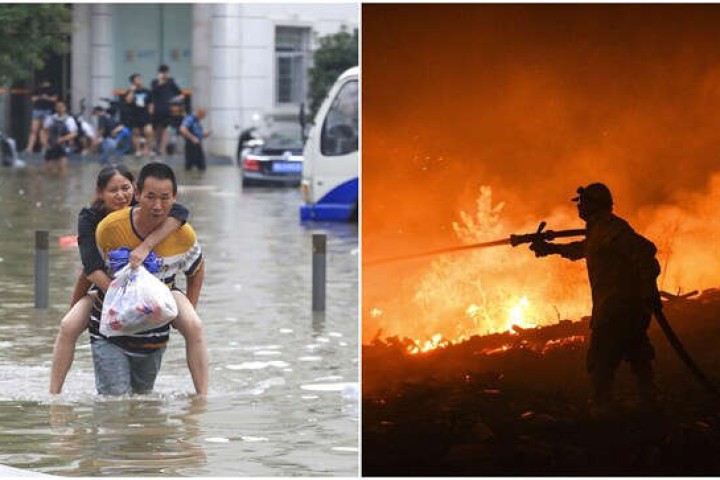Anxiety, distress, suicidal behaviour: Climate change poses serious risk to mental health

Climate change has emerged as the biggest crisis on the planet with impacts being seen across the world. From melting of glaciers to uncontrolled wildfires to unpredictable flooding, climate-led extreme events have become more intense and frequent in the last few years.
The findings released in the global health body's policy brief, echo findings by the Intergovernmental Panel on Climate Change (IPCC) published in February which stated that fast-rising climate change poses a growing hazard to mental health and psychosocial well-being, ranging from emotional distress to anxiety, sadness, bereavement, and suicidal behaviour.
"The impacts of climate change are increasingly part of our daily lives, and there is very little dedicated mental health support available for people and communities dealing with climate-related hazards and long-term risk." Dr Maria Neira, Director of the Department of Environment, Climate Change and Health at WHO, said in a statement.
The impact of climate change on mental health is distributed on the basis of socioeconomic status, gender, and age, but it is obvious that climate change affects many of the social determinants that are already contributing to significant mental health burdens around the world.

The IPPC revealed that rapidly increasing climate change poses a rising threat to mental health
A survey conducted by WHO in 2021, among 95 countries, only nine included mental health and psychosocial support in their national health and climate change plans.
WHO said that around a billion people worldwide suffer from mental illnesses, but three out of every four do not have access to the necessary services in low- and middle-income countries. Climate change is affecting an already difficult situation for mental health and mental health services around the world, said Dévora Kestel, Director of the WHO's Department of Mental Health and Substance Abuse. Furthermore, he added that countries should do more to protect people by increasing mental health and psychosocial assistance as part of disaster risk reduction and climate action.
The agency highlighted a national project in India that has scaled up disaster risk reduction in the country while also preparing cities to respond to climate risks and address mental health and psychosocial needs.
The new WHO policy brief suggests five key approaches for governments to address climate change's mental health effects:
- Integrate climate considerations into mental health programmes
- Integrate mental health support into climate action
- Expand on global commitments
- Develop community-based methods to minimise vulnerabilities
- Eliminate the substantial financing gap for mental health and psychosocial support

